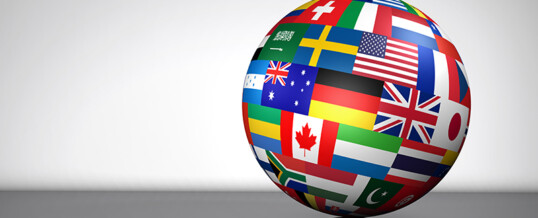
McLeod Group guest blog by Gloria Novovic and Stuart Trew, April 21, 2022
Recently, the federal government issued Budget 2022, unveiling plans for “Canada’s leadership in the world”. This leadership role, however, is questionable. In 2020, Canada’s failed bid for a seat on the United Nations Security Council confirmed what many observers had been warning about: that Canada lacks a coherent foreign policy. Instead, we have vague assurances of Canada’s commitment to the so-called rules-based international order (RBIO).
Just as the climate emergency, global conflicts and the ongoing pandemic have driven important changes in domestic priorities, Canada must now also go beyond incremental changes to its foreign policy. Canada’s short-term approach is resulting in incoherent strategies and unclear future directions. We need instead an internationalist foreign policy direction that integrates diplomacy, trade, defence and global development.
The incoherence of Canada’s global engagement
Canadian government officials claim to be guided by a “feminist foreign policy”. However, no explicit framework exists yet, beyond the international assistance policy, which is often undermined by the pursuit of narrow trade and security interests.
For example, Canada has committed to donating the equivalent of 200 million doses of COVID-19 vaccines to lower-income countries. At the same time, under pressure from the pharmaceutical industry, it is obstructing efforts to scale up global vaccine and therapeutics manufacturing in developing countries. Similarly, Canada’s $15 billion arms sales with Saudi Arabia are difficult to reconcile with Canada’s $379 million contribution since 2015 for humanitarian and peace operations in Yemen, where Saudi Arabia is responsible for widespread human rights abuses.
Whose rules? What order?
Global Affairs Canada frequently emphasizes the centrality of the RBIO in sustaining Canada’s interests. The trouble is, the RBIO, a term coined some 60 years ago, lacks a clear definition. Even the most fundamental rules under international law are continuously broken.
Blatant examples of violations of sovereignty, such as the US invasion of Iraq or Israel’s expansion of illegal settlements in Palestine, expose the lack of coherence and accountability in this system. Through our own actions as much as those of aggressor nations, we delegitimize the rules-based international order, leaving a moral vacuum in the current geopolitical arena.
Similarly, Canada’s efforts to meet its Paris Agreement environmental targets have been described as “highly insufficient”. Canada hides behind the RBIO at the World Trade Organization (WTO) as well, consistently blocking proposals by developing countries that could potentially undermine Canadian business interests, such as a temporary waiver on COVID vaccines.
Towards future-proof global engagement
Foreign policy geared to promoting narrow Canadian interests also ultimately fails domestic populations. This fact is clear in the case of the climate emergency and the global pandemic, but no less true for rising inter- and intra-country inequality. Canada’s industries are highly vulnerable to global disruptions. Canada’s immigrant population (40% of Canadian’s are first- or second-generation immigrants) will shoulder the responsibility of sending remittances abroad to respond to the increase in poverty and disease in developing countries caused by the pandemic. Failure to prevent and de-escalate global conflicts also harms the Canadian economy. Budget 2022 shows that taxpayers’ dollars are going towards weapons rather than to health care, education and shelter.
In contemplating a more internationalist approach to its global engagement, Canada should examine precedents set by its allies. For example, the US and the European Union recently agreed on a steel and aluminum tariff moratorium that incentivizes reducing emissions, maintaining jobs and production-sharing rather than cutthroat competition. Canada slammed the Biden administration’s “worker-centered” trade policy and green industrial strategies as simple protectionism, but such approaches may present a model on which to build shared prosperity and decarbonization.
An alternative framework for more solidaristic foreign policy has already been outlined in the Sustainable Development Goals (SDG) Agenda that all 193 United Nations member states approved in 2015. Many middle- and low-income countries have integrated the SDGs into their national development plans. Canada’s own 2030 Agenda National Strategy lists commitments to ensure policy coherence and integrate domestic with global objectives. However, the government has failed to achieve policy coherence between its trade, defence and diplomacy agendas.
Examples offered by the Non-Aligned Movement are also increasingly recognized as valuable. In January 2022, a Vaccine Internationalism Summit was organized after a failure of the G7 countries to come up with a plan for the equitable distribution of COVID-19 vaccines. The summit gathered representatives from private sector companies, governments and science institutions, leading to unprecedented solidarity agreements encompassing vaccine sharing, fair pricing, and technology and skills transfer.
Canada’s foreign policy should be based on the mapping of future scenarios and should seek to ensure the country’s readiness to address existing and future crises. Structures such as UNESCO’s global foresight observatory and at the European Union level and academic labs can help track signals of future shifts across digital technology, social norms, economic patterns, migration and environmental ecosystems. Canada should support these global initiatives as well as build its own domestic capacity to produce and act on more sophisticated, future-oriented insights.
International solidarity as a tool of foreign policy
When the federal budget is announced, observers tend to focus on their specific budget lines, ignoring cross-cutting spillover effects and opportunity costs. We are often told that goals of global prosperity are out of reach, but, in reality, they are unattainable only if we stick within existing and outdated policy directions. As outlined in the Alternative Federal Budget, more integrated foreign policy interventions, more strategic multilateral positions and military savings all offer fiscally responsible ways of delivering on the promises of collective well-being.
Gloria Novovic is an incoming postdoctoral researcher at the University of Ottawa and an independent consultant specializing in global governance and development policy. Stuart Trew is Director of the Trade and Investment Research Project and a senior researcher at the Canadian Centre for Policy Alternatives. Image: Centre for International Learning and Leadership.
